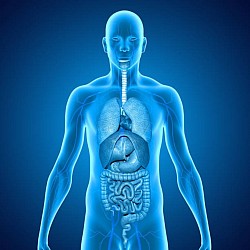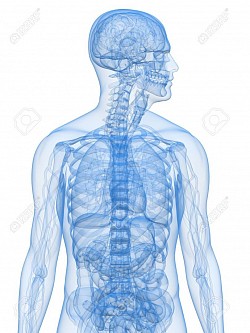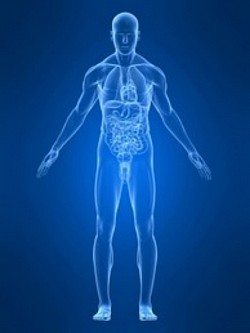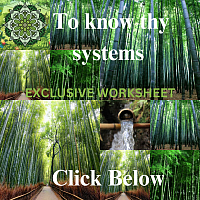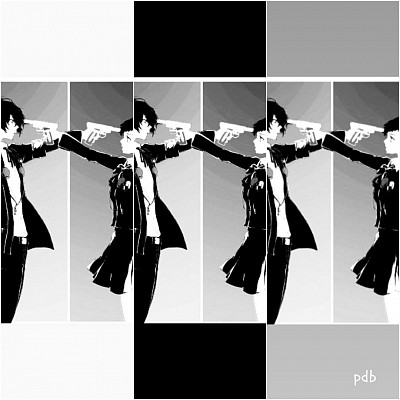Humility and Acceptance required:
Deep Self Care
Rediscovering Self-Care:
Taking Back Control of Our Health
In today’s fast-paced world, self-care has become a buzzword, often reduced to fleeting moments of indulgence rather than a deep, introspective practice. While society urges us to engage in surface-level activities like spa days or the occasional mindfulness exercise, there’s a critical aspect of self-care that remains woefully underexplored: the profound, inner awareness of our own bodies and minds. I believe that the true essence of self-care goes far beyond these superficial treatments and lies within our ability to tune into our internal imbalances and restore harmony from within.
Over time, I’ve come to the conclusion that many of us have lost touch with our inherent ability to care for ourselves. Instead of listening to our bodies and addressing the subtle signals they send us, we often rush to seek external validation and solutions, particularly from the medical system. While there’s no denying the importance of modern medicine, I believe that our over-reliance on it has, in many ways, disempowered us from taking charge of our own health.
Through years of research, study, learning, experience, and meditation, I’ve realized that self-care is much more profound than simply addressing physical symptoms. It’s about understanding the mysterious spaces within us—the parts of our being that modern science cannot fully explain but that we can sense if we allow ourselves to. These are the spaces where imbalances first take root, long before they manifest as physical symptoms.
The body is an intricate system, composed of interconnected parts that communicate constantly. When something is out of balance, the body sends us signals. These signals can be as subtle as a lingering feeling of unease, a dip in energy levels, or even a sense of disconnection from oneself. However, in a world that prioritizes productivity over introspection, many of us have learned to ignore these signs, numbing them with distractions or seeking quick fixes that address the symptoms but not the root cause.
This realization has led me to embrace a deeper approach to self-care—one that involves turning inward, recognizing when something feels off, and trusting in our ability to restore balance. It’s about reestablishing a connection with our inner selves, listening to our bodies with compassion, and taking the time to address our needs on a fundamental level.
Meditation has been a powerful tool in this journey. Through meditation, I’ve learned to quiet the noise of the outside world and tune into the subtle rhythms of my body and mind. It has allowed me to identify imbalances before they escalate and to address them with a sense of calm and clarity. By creating this space for reflection, I’ve gained a deeper understanding of what my body needs to thrive, and I’ve become more confident in my ability to provide for those needs without immediately turning to external sources for answers.
This approach doesn’t mean rejecting modern medicine or the support of healthcare professionals, but rather, it’s about reclaiming our role as active participants in our own well-being. It’s about recognizing that we have more control over our health than we might believe, and that by tuning into our inner selves, we can often prevent imbalances from becoming full-blown health issues.
In a society where dependence on external solutions has become the norm, I believe it’s time to reintroduce the idea that we can care for ourselves in more profound ways. We can start by cultivating a deeper relationship with our bodies, learning to trust the signals they send, and taking proactive steps to maintain our well-being. This, to me, is the true essence of self-care—one that is deeply personal, empowering, and rooted in the understanding that our bodies have an innate ability to heal and maintain balance if only we take the time to listen.
Discover and Mentally Explore
Deep Self-Care Worksheet: Reconnecting with Your Body and Mind
This worksheet is designed to help you reconnect with your body and mind through intentional self-care practices. By taking time to listen to your body, understanding its needs, and nurturing it, you can foster a deeper sense of well-being and balance. Use this worksheet as a guide to explore and implement the self-care principles that resonate with you. It goes in 3 steps:
• Reflect:
• Practice:
• Action Step:
1. Take Time to Feel and Listen
* Close your eyes and take a few deep breaths. How does your body feel right now? Are there any areas of tension, discomfort, or ease?
* Spend 5-10 minutes each day simply noticing how your body feels without judgment. Write down any sensations or emotions that arise.
* How will you respond to what you feel? (e.g., stretch, rest, hydrate, etc.)
2. Consoling and Self-Compassion
* When you feel discomfort or pain, how do you usually react? Do you criticize yourself or offer kindness?
* When you experience discomfort, try offering yourself kind words, just as you would to a friend. Write down a few comforting phrases you can say to yourself.
* What is one way you can console yourself today? (e.g., take a warm bath, give yourself a hug, etc.)
3. Changing Position and Posture
* Consider your daily routine. Are there times when you stay in the same position for too long?
* Make a conscious effort to change your position or posture throughout the day. Set reminders to stand, stretch, or move every hour.
* What new position or posture will you adopt today to relieve tension? (e.g., sitting up straight, doing a yoga pose, etc.)
4. Relax When You Feel Pain
* How do you typically respond to pain? Do you tense up or push through it?
* The next time you feel pain, try to relax into it. Breathe deeply and allow your body to soften around the pain.
If you have an accident, the reflex of totally letting go and relaxing, is better.
* Identify a relaxation technique you can use when you feel pain. (deep breathing, progressive muscle relaxation, totally let go ! )
5. Don't be Afraid: We Can Heal
* What fears do you have about your health and body’s ability to heal?
* Write down a positive affirmation that reinforces your body’s capacity to heal, such as "My body is resilient and capable of healing."
* How will you remind yourself to trust in your body’s healing process today?
6. Trust That the Body Will Find Its Balance
* Think about a time when your body naturally healed from an injury or illness. How did it feel to trust in that process?
* Spend a moment each day acknowledging the ways your body is finding balance, even in small ways.
* What is one thing you can do today to support your body’s natural balance? (eat better, drink more water, get extra rest, play more, work more)
7. Learn to Eat Right
* Consider your current eating habits. Are they nourishing your body in the way it needs?
* Choose one meal to focus on today. How can you make it more nourishing? Include whole foods that support your body’s systems.
* What specific food or nutrient will you incorporate into your diet today?
8. Don’t Forget to Breathe
* How often do you take deep, intentional breaths throughout your day?
* Set aside time to practice deep breathing exercises. Inhale deeply for 4 counts, hold for 4, and exhale for 4.
* When will you incorporate deep breathing into your daily routine? (e.g., during breaks, before bed, etc.)
9. Hydrate: Water, Of Course
* How much water do you typically drink each day? Is it enough to keep you hydrated?
* Track your water intake today and aim to drink at least 8 glasses of water.
* What steps will you take to ensure you stay hydrated? (wet my neck and back,carry a water bottle, set reminders
10. Focus on What Each System Needs
* What are the specific needs of your body’s systems (digestive, respiratory, etc.) that you might be overlooking?
* Choose one system to focus on today. What does it need to function optimally? Research and implement practices to support it.
* How will you support this system today? (eat more fiber for digestion, practice breathing exercises for overall health, note how certain food feel).
11. Care for Your Body: It’s Your Home on Earth
* In what ways do you care for your body as your home? Are there areas where you could be more attentive?
* Write down one way you can show your body more care today, treating it as the home that it is.
* What will you do today to honor your body? (get a massage, nourish it with healthy food, exercise, affinity)
12. Live Free and Creatively Long
Download from Here: click click click
ME, Me, me and you.
Here’s a structured exploration of the relationship between the body, soul, and consciousness, focusing on how they interact and evolve over time.
The Triad of Body, Soul, and Consciousness
1. The Body:
The Vessel of Experience
The body serves as the physical vessel through which the soul experiences the world. It is not just a biological entity but a repository of ancestral memory. This ancestral memory influences our instincts, behaviors, and responses to the environment. Each generation passes down experiences, traumas, and wisdom, shaping how we interact with the world. The body allows the soul to engage with the material realm, providing sensory experiences that inform and enrich its understanding of existence.
2. The Soul:
The Essence of Light
The soul represents the pure essence of being, often described as light. It embodies intrinsic values and connects us to a higher consciousness. The soul seeks growth, understanding, and connection, aspiring toward love, compassion, and enlightenment. It is the eternal part of us, carrying lessons from past lives or experiences that inform our current journey. The soul's light illuminates the path of our growth, guiding our choices and actions toward fulfilling our purpose.
3. Consciousness:
The Evolving Interface
Consciousness emerges from the interplay between the body and soul. It acts as the bridge, evolving as we navigate our experiences. Consciousness is shaped by the body's sensory inputs and the soul's deeper insights. This evolving consciousness allows for self-reflection, critical thinking, and emotional growth. As we encounter life's challenges and joys, our consciousness expands, incorporating lessons that facilitate personal development.
Interrelationships and Growth
The Body and Soul:
A Dynamic Relationship
The body and soul maintain a symbiotic relationship. The body grounds the soul, providing it with the necessary tools to experience life fully. In turn, the soul infuses the body with purpose and meaning. Physical health and well-being can enhance the soul's expression, while spiritual practices can lead to a more harmonious relationship with the body. For instance, mindfulness and meditation can enhance bodily awareness, promoting health and vitality.
The Body and Consciousness:
Sensory Feedback Loop
Consciousness arises from the sensory experiences of the body. Every sensation: pain, pleasure, joy, or sorrow, shapes our consciousness, informing our perceptions and decisions. The body acts as a conduit for learning, where experiences lead to a deeper understanding of ourselves and the world. For example, engaging in physical activities can elevate mood and mental clarity, showcasing how physical states influence consciousness.
The Soul and Consciousness:
The Quest for Understanding
The soul drives consciousness toward self-awareness and enlightenment. Through introspection, the soul encourages us to explore our values, beliefs, and motivations. This journey often leads to moments of realization and awakening, where we connect with our deeper selves. Spiritual practices, such as meditation or contemplation, can enhance this relationship, allowing consciousness to tap into the wisdom of the soul, facilitating personal growth and transformation.
The Journey of Growth
As we navigate life, the interactions among the body, soul, and consciousness lead to growth and evolution.
Self-Discovery
The exploration of inner values and beliefs fosters a deeper understanding of oneself. This journey can reveal innate talents, passions, and purpose.
Healing and Integration
Recognizing ancestral memories and traumas stored in the body allows for healing, fostering a stronger connection between body and soul. This integration is essential for holistic growth.
Expanded Awareness
As consciousness evolves, it opens pathways to higher states of awareness and understanding. This expanded consciousness often leads to greater empathy, compassion, and a sense of interconnectedness with others and the universe.
The interplay between the body, soul, and consciousness creates a rich tapestry of human experience. Each element influences and shapes the others, resulting in a dynamic system of growth and evolution. Understanding this triad can lead to a more profound appreciation of life, as we embrace our journey toward self-discovery, healing, and enlightenment.

